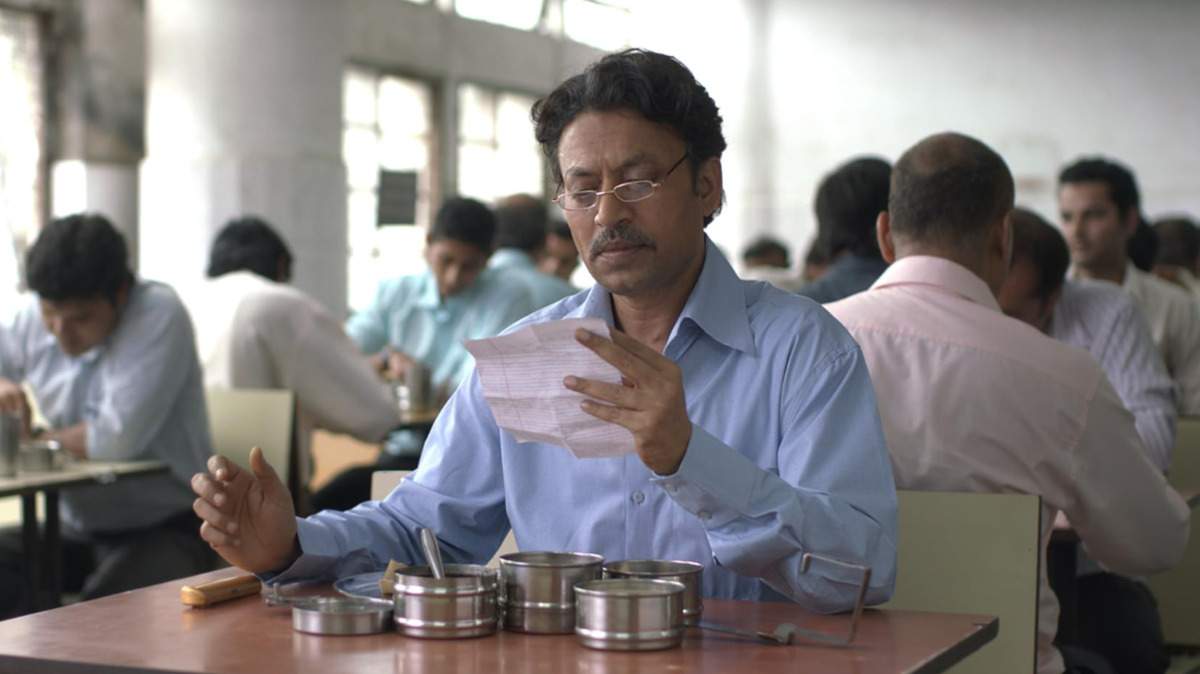Love is a universal emotion that transcends time, culture, and age. It can manifest itself in countless forms, and its portrayal in cinema has been a source of inspiration and fascination for generations. In the 2013 Indian film “The Lunchbox,” directed by Ritesh Batra, we are presented with a unique and heartfelt exploration of love that defies the conventions of modern romance. Through the lens of old-school anonymity, this film provides an exquisite depiction of how love can soften the discontent of the new world. “The Lunchbox” is a masterful narrative that reminds us of the profound and transformative power of love, even in the most unexpected of circumstances.
Mumbai’s Dabbawalas
“The Lunchbox” unfolds against the vibrant backdrop of Mumbai, India. At the heart of this bustling metropolis lies a unique and traditional system of meal delivery known as the “dabbawala” service. In this system, freshly prepared lunches are collected from the homes of workers and delivered to their offices with remarkable precision. This seemingly mundane practice forms the foundation of the film’s narrative and sets the stage for a serendipitous connection between two strangers.
The Old School Anonymity
In a world dominated by digital communication and social media, where personal connections often seem fleeting and superficial, “The Lunchbox” reintroduces us to the charm of anonymity. The film’s protagonists, Ila (played by Nimrat Kaur) and Saajan (played by Irrfan Khan), communicate through handwritten letters that are exchanged via the lunchbox. Their anonymity is not only a nod to an earlier era but also a poignant symbol of the barriers that often exist between individuals in today’s fast-paced, technologically driven world.
The lunchbox itself becomes a vessel for the exchange of emotions, thoughts, and culinary delights. Ila pours her heart into her cooking, hoping to rekindle the affection of her neglectful husband, while Saajan, a lonely widower on the cusp of retirement, finds solace in her delicious meals. Their letters reveal their innermost thoughts and desires, forging a connection that transcends physical presence.
Love, In Its Most Unadulterated State
“The Lunchbox” beautifully illustrates that love is not always about grand gestures and sweeping declarations. Instead, it can manifest itself in the simplest acts of kindness and understanding. Ila and Saajan’s relationship blossoms as they share their hopes, dreams, and disappointments, offering each other the emotional support that has been lacking in their lives.
The film’s portrayal of love is devoid of the superficiality often associated with modern romance. Ila and Saajan’s connection is based on authenticity and vulnerability. They open up to each other in ways they cannot with the people in their immediate lives, revealing their true selves without fear of judgment. This portrayal of love is a refreshing departure from the contrived and often unrealistic depictions that saturate contemporary cinema.
The New World Discontent
Despite the beauty of their connection, “The Lunchbox” does not shy away from depicting the discontent that plagues the characters in the modern world. Ila is trapped in an unfulfilling marriage, and Saajan faces the impending emptiness of retirement, both struggling to find meaning and purpose in their lives. Their daily routines are monotonous, and they are surrounded by a sense of loneliness and alienation.
However, their exchange of letters provides them with a lifeline, a glimmer of hope that brightens their otherwise mundane existence. The film reminds us that love, even in its quietest and most understated form, has the power to mitigate the discontent that often accompanies the complexities of modern life.
A Magnum Opus, Indeed
“The Lunchbox” is a cinematic gem that captures the essence of love through the old-school anonymity of handwritten letters. It stands as a testament to the enduring power of human connection, even in a world where technology often threatens to isolate us. Through the characters of Ila and Saajan, the film explores the redemptive quality of love, offering a glimpse into how it can soften the discontent of the new world.
In an era marked by fast-paced living and virtual relationships, “The Lunchbox” invites us to pause and appreciate the beauty of genuine connections forged through vulnerability and authenticity. It reminds us that love can thrive in the most unexpected places, providing solace and renewal to those who dare to reach out and connect with another human soul. This timeless tale of love and longing continues to resonate with audiences worldwide, serving as a testament to the enduring appeal of old-school romance in the modern age.













My brother suggested I might like this web site. He was entirely right. This post truly made my day. You cann’t imagine just how much time I had spent for this info! Thanks!
I am often to blogging and i really appreciate your content. The article has really peaks my interest. I am going to bookmark your site and keep checking for new information.